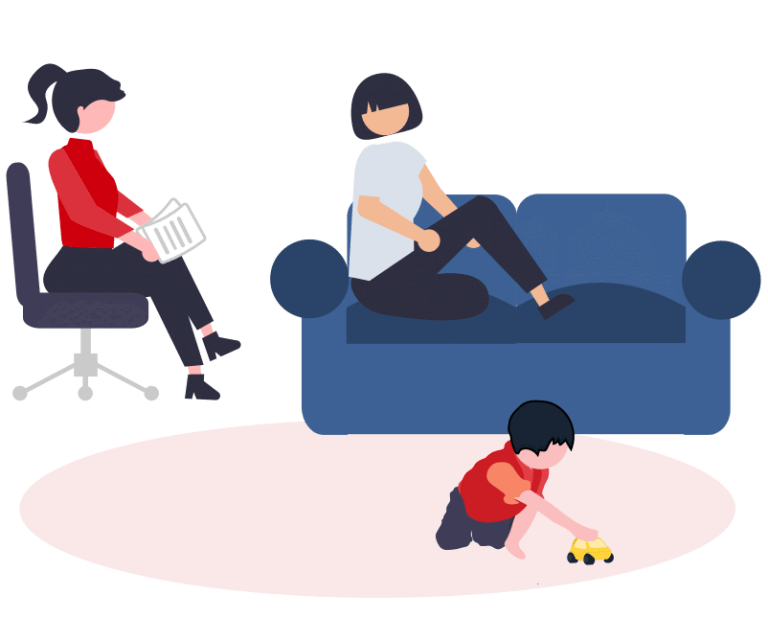Psycho-Educational Evaluation

The psychoeducational assessment is a comprehensive evaluation conducted by a psychologist to identify a child or adolescent’s strengths and areas of growth. The assessment evaluates multiple areas of functioning. The evaluation aims to provide the caregivers, teachers, and children with valuable information about how they approach tasks, access their abilities, learn, communicate, and process information. Collectively this informs how to best optimise their learning.
The evaluation consists of standardised assessments, qualitative report measures, and observations. Assessments are catered to each individual’s needs and areas of concern. Tests are added to the typical protocol if indicated during the testing process.
The initial step in the evaluation process is a caregiver consultation meeting to review the the areas of concern, and the developmental, academic, social, and behavioural history. At this meeting, the psychologist explains the testing process and identifies the areas of focus based on the questions or concerns reported. At this session, it is determined whether a school observation is required or not.
Next, the child or adolescent attends their testing sessions with the psychologist. These sessions vary in duration based on the child’s age, stamina, and ability to concentrate. The evaluation aims to obtain the best performance from the child or adolescent. For some children or adolescents, this may require multiple sessions to complete all the recommended tests.
When testing is completed, the psychologist analyses the data gathered from the assessment to highlight the child’s strengths and identify their areas of growth. This information guides recommendations that will support the child in school and at home. Caregivers attend a feedback session with the psychologist to review the results and a comprehensive report is shared.
Depending on the child’s age, the psychologist may conduct a mini feedback session with the child to highlight their areas of strength and explain the purpose of the evaluation.
A meeting to review the results with the school is often requested to support the implementation of recommendations and to help the child or adolescent thrive.
How do I know if my child needs an assessment?
- They are school-aged (6 and above)
- You have questions regarding their learning and functioning
- They are having difficulty accessing the curriculum
- You have concerns related to attention, focus, and concentration
- You want to better understand your child’s learning or developmental needs
- Your child displays signs of being gifted, yet they are not thriving
- The school requests an assessment in order to provide appropriate additional support
- You require accommodations for standardised assessments
What do we evaluate?
Cognitive ability: the assessment of intellectual ability such as verbal and nonverbal reasoning skills, memory consolidation, and processing speed.
Language: the assessment of the child or adolescent’s ability to express themselves and understand language.
Academics skills: the assessment of core academic skills such as reading, writing, spelling, and mathematics.
Executive functioning: the assessment of attention and focus, as well as organisational skills and general management skills.
Social-emotional functioning: assessment of the child or adolescent’s peer and adult interactions, their thoughts about themselves, and their ability to emotionally regulate.
Behavioural functioning: assessment of the child or adolescent’s ability to control their behaviour and engage in prosocial behaviour.
What is included in the assessment?
Evaluations are conducted in the morning to ensure we are assessing the child or adolescent’s true ability and potential.
| Components | Duration |
| 1. Initial caregiver consultation | One hour |
| 2. Assessment sessions | Typically, two or three 3-hour sessions (this can vary depending on the needs of the child or adolescent) |
| 3. School observation – if indicated | One hour |
| 4. Feedback Session with caregivers | One hour |
| 5. Optional child feedback | One hour |











